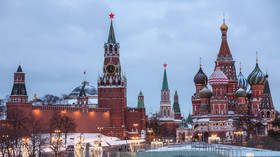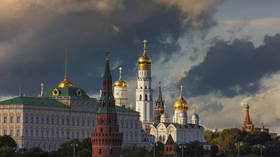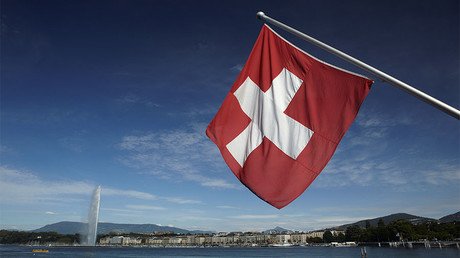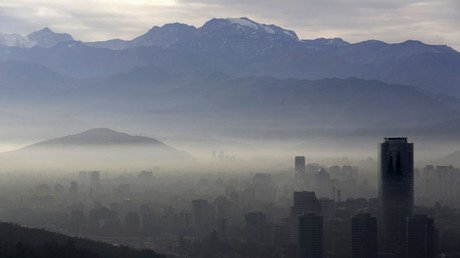Middle East oil tanker insurance rates soar 10-fold since attacks in Strait of Hormuz
Insurance rates for tankers going through the Strait of Hormuz have skyrocketed tenfold in the two months since the first attacks on tankers off the coast of the UAE, CNBC reports, quoting a chief executive of a shipping company.
The news could reinforce anticipation of higher oil prices, not because of fundamental factors but because of insurance rates.
The first link in a chain of events that may send prices higher took place in late May, when Middle Eastern media reported attacks on four tankers off the coast of the port of Fujairah, in the Persian Gulf and close to the Strait of Hormuz. Then, about two weeks later, another attack was reported, this time in the Gulf of Oman, right out of the Strait of Hormuz. Finally, Iran shot down a US drone claiming it was flying over its territory.
Also on rt.com War in the Persian Gulf could send oil prices beyond $325 a barrelAfter the US blamed both tanker attacks on Iran, the drone incident was seen by many as the last straw before open military confrontation. This has not yet materialized, but oil prices spiked after both attacks and the drone shoot-down and reports about insurers hiking their tanker premiums for Strait of Hormuz-passing vessels multiplied.
The Strait of Hormuz is the world’s biggest oil choke point: The daily flows of oil through the channel accounts for around 30 percent of all seaborne-traded crude oil and other liquids. Although being in the Middle East it has never been a completely safe place, after the tanker attacks concern about the vessels passing through it has intensified substantially.
“We have people of every nationality and vessels of every flag transiting that crucial sea lane,” the chairman of the International Association of Tanker Owners, Paolo d’Amico, told the New York Times after the second attack. “If the waters are becoming unsafe, the supply to the entire Western world could be at risk.”
“As a shipping company and part of the global shipping industry, we are taking the threat to our crew and ships very seriously,” Anthony Gurnee, chief executive of Ardmore Shipping, told CNBC this week. “At the moment, it is business as usual (but) insurance to transit the Strait of Hormuz has actually increased 10-fold in the last two months as a consequence of the attacks.”
Also on rt.com Surge in oil price after Hormuz drone attack could lead to global recession, experts tell Boom BustThe effect of these events on oil prices has been more marked than OPEC+’s largely expected decision to extend the oil production cuts of 1.2 million bpd into the first quarter of 2020. Prices spiked towards the end of June, when reports began emerging that insurers are upping their premiums for tankers passing through the Strait of Hormuz and they haven’t fallen much from that level.
The effect events in the Persian Gulf and the Gulf of Oman from the last two months have had on oil prices will last until tensions between the US and Iran, and Iran and Saudi Arabia subside, that’s for sure. Higher insurance premiums are only one aspect of this effect, by all means an important one.
Also on rt.com Oil could skyrocket to over $100-per-barrel if Iran-US war breaks out, analysts predictOne other aspect of this effect was expressed by RBC’s head of commodities Helima Croft to the NYT. Croft noted that what happened to oil prices in the wake of the attacks highlights the importance of Strait of Hormuz as a global oil artery even at a time when many believe US production can offset any drop in supply elsewhere.
“There is no way the market is insulated from that because of US shale,” Croft said.
This article was originally published on Oilprice.com















